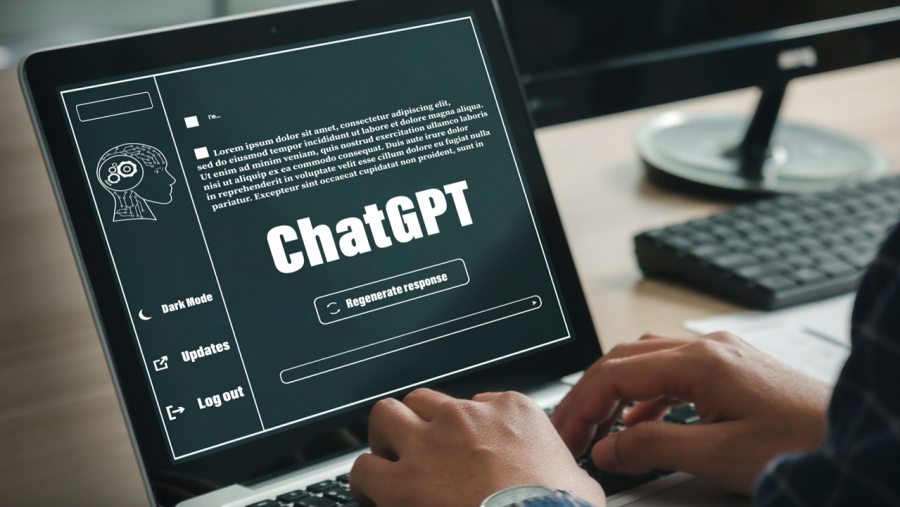ChatGPT: The Future or the End of Writing?
February 22, 2023
ChatGPT is a state-of-the-art language model developed by OpenAI. It is one of the most advanced AI models in the world, capable of generating human-like responses to a wide range of topics. This model is built on the GPT-3 architecture, which is considered to be the largest AI language model to date.
The software is designed to improve conversational interfaces by enabling the development of AI-powered chatbots that can provide users with accurate and relevant information. The model can be used for various applications, including customer service, e-commerce, and education. ChatGPT can be integrated into any conversational platform, such as websites, mobile apps, and voice-enabled devices.
The first two paragraphs you just read were generated by ChatGPT. While the paragraphs sound a bit robotic, they are well-informed and could easily pass as written by a human. ChatGPT, as previously mentioned, is an incredibly advanced AI software with capabilities beyond anything seen before. However, the sheer intellectual capacity of the site to generate everything and anything imaginable has caused controversy, with many asking, Is the site helping or hurting the future of writing?
The major issue people have with ChatGPT is the easy accessibility for students. With the advanced nature of ChatGPT, students can simply copy and paste their essay prompt into the text box and have a full essay written for them in a matter of seconds. The site is inadvertently promoting plagiarism as it allows students to cheat like never before.
However, while seemingly efficient at writing papers, the site is flawed. The two major issues are inaccurate information and bias. For example, the site fails to answer basic logic and math questions. There have been multiple occasions where ChatGPT produces factually incorrect information. The site has been proven to not be reliable, and it poses a major threat to media literacy. Additionally, the site uses bias when creating responses. To make the AI functional and produce thousands of different responses to specific questions, the AI had to read many different writing samples. Consequently, the AI only knows as much information as it has read, and therefore the generated responses tend to be shallow and biased.
ChatGPT is generally viewed as unethical and wrong, yet the similarities between ChatGPT and a well-received concept called ghostwriting seem eerily similar. Ghostwriting has been an available service for centuries; a ghostwriter is someone who is hired to write something and credit another person as the author.
For years the ethics of ghostwriting have been debated. Yet, the overall consensus seems to be that ghostwriting is not ethically wrong. Using this same logic, it can be argued that ChatGPT is also not ethically wrong, yet, the majority of people seem to think so.
As society advances along with the technology to which we have access, the ethics of using AI software has blurred. Has society entered a less productive, lazier, era, where AI is used simply because it is less work than doing something ourselves?
ChatGPT, while representing some of the most impressive technological advancements to date, has been built on the foundation of biases and has a long way to go before it can be deemed appropriate for public use. The site is inherently dangerous for students and faculty everywhere as it enables cheating which threatens student learning. Although using the software is easier than writing a paper, St. Luke’s has banned the site, a choice that is most definitely better for the student body, and for you, as a writer.




